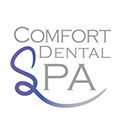Most people want that clean, beautiful smile dentists advertise. One of the most common ways to improve your own smile is by using teeth whitening treatments, which have become more popular since it became possible to do at home. However, you may be concerned about the safety of bleaching applications, or be unsure how to do it properly. Some commonly asked questions about teeth whitening are answered below, to help you determine the safest and best way to whiten your own teeth, or if that’s even the best treatment for you.
What Does Whitening Treatment Involve?
You should first schedule an appointment with your dentist to determine the best treatment for your stains. If we agree that teeth whitening is the best option, we will make impressions of your teeth in order to create trays. You will have to come back for a second appointment, where you will receive the trays that you will wear, with a whitening solution to place in them, for a predetermined period of time each day, depending on the severity of your teeth staining.
Is There Any Reason I Can’t Get My Teeth Whitened?
Although the discoloration on your teeth may have come from drinking tea or coffee, or by other normal means, it could also be a symptom of a dental problem, such as an abscessed tooth or tooth decay. In those cases, treating the cause of the discoloration is more important than the whitening procedure. If you have one of these issues, your dentist will recommend a new course of action.
Is Teeth Whitening Bad for Me?
There is no permanent damage caused by teeth whitening to the enamel of your teeth. You may experience increased sensitivity while you are undergoing the treatment, but is should fade soon after you are finished.
How Long Does the Treatment Last?
Your bright smile will generally last from six months to two years. You will probably require a touch-up in several years. To protect your teeth, avoid tea or coffee. Brush your teeth twice a day and floss once to protect them from staining food debris, and visit your dentist at least once every six months for regularly-scheduled dental checkups and cleanings.

 This Summer
This Summer  $1,000 OFF Braces!
$1,000 OFF Braces!